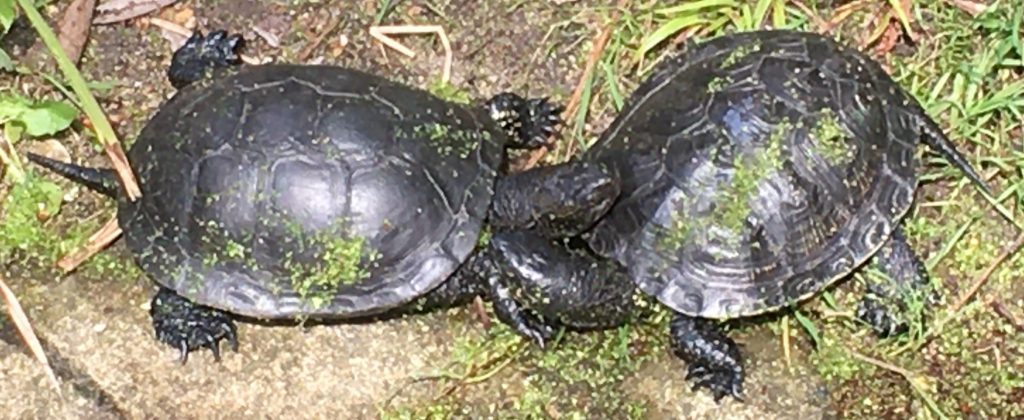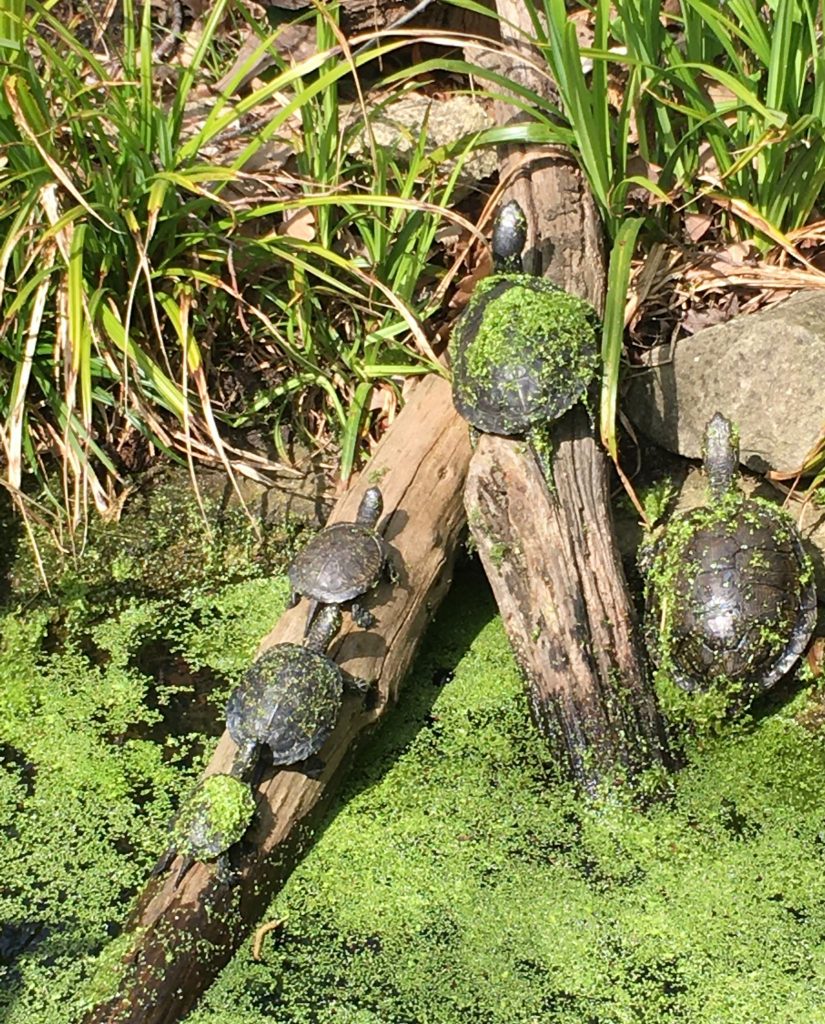In the 1990’s the Teenage Mutant Ninja Turtles peaked in popularity as the first three films were released, leading to turtles becoming popular pets, as cheap imported turtles were (wrongly) considered to be easy to keep. But did you know that even longer ago freshwater turtles were native in the UK?
Around 8000 years ago, European Pond Turtles would have been a common sight in the UK. However, due to changes in the climate they became extinct. There are populations across mainland Europe, but many of these populations are becoming critically endangered, and the EU Environment Agency lists them as ‘near threatened’ across the continent. The numerous reasons that turtles are struggling in many parts of Europe include competition from non-native turtles that are often dumped pets, climate change and loss of habitat. Meanwhile, in the UK some believe that a small population of European Pond Turtles survived in one or two locations, however these small populations are more likely to be from escaped or released pets.

Pet turtles are often bought when young and only a couple of centimetres small, but they grow to become much larger; depending on the species to 75 cm or more. Unfortunately, owners often find their pets become too large for their tanks and dump them in local rivers, which is illegal. Sightings of turtles in UK rivers and ponds are not uncommon, these former pets will be just a few of the lucky ones who have managed to survive.
Red-eared sliders and yellow-bellied sliders were two species that were common to keep as pets; they can live for up to 40 years and grow up to 30 cm long, so many people found that they couldn’t keep them when they were fully grown. If you see a turtle in the river, it is quite likely to be one of these species, they are quite hardy and known to sometimes survive in the UK weather. In 2016 the EU’s Invasive Alien Species Regulations came into force in the UK, the list of species affected included the red-eared sliders and the yellow-bellied sliders. This meant that it became illegal to breed, give away or sell these turtles due to the impact on native biodiversity. People who already owned these species of turtles could keep them to live out their natural life or give them to a registered rescue.
Our favourite European Pond Turtles are not currently considered an invasive species, nor are they considered a native species. It is legal to breed and keep them as pets but illegal to release them into the wild.
In 2021, two teenagers gained a huge amount of media attention for the work they were doing breeding reptiles and amphibians. All the species that they breed in captivity are native or have once been native to the UK. Their aim is to breed these species in captivity for reintroduction programs across the UK. While reintroductions of European Pond Turtles into the UK doesn’t seem like it will happen anytime soon, you can see a lovely group of them just outside of Canterbury at the Wildwood Trust. Set in 40 acres of ancient woodland, the Wildwood Trust works for the conservation of British wildlife and is involved in different research and reintroduction programs. Amongst the European Pond turtles that live at Wildwood is a group who were seized at customs when someone attempted to smuggle a group of babies into the UK.
Wildwood is home to over 200 animals including some that are currently found in the wild, such as badgers and deer, but others that were once native to the UK but have since gone extinct in this country, such as the European Pond Turtles and the European Brown Bear.

For several years the University’s Academy for Sustainable Futures has collaborated with the Student Union to organise free trips to Wildwood for students. You can read about Holly’s experience in a previous blog post.
Keep an eye out in the new academic year when hopefully there will be more Wildwood trips for students to enjoy, perhaps see a European Pond Turtle or even a reindeer if that is more your thing!
For more information about turtles visit:
By Tim Licence, SGO Projects Officer #actingtogether
Photos by Tim Licence, European Pond Turtles at Wildwood
 Sustainability
Sustainability Bethany Climpson
Bethany Climpson 966
966

